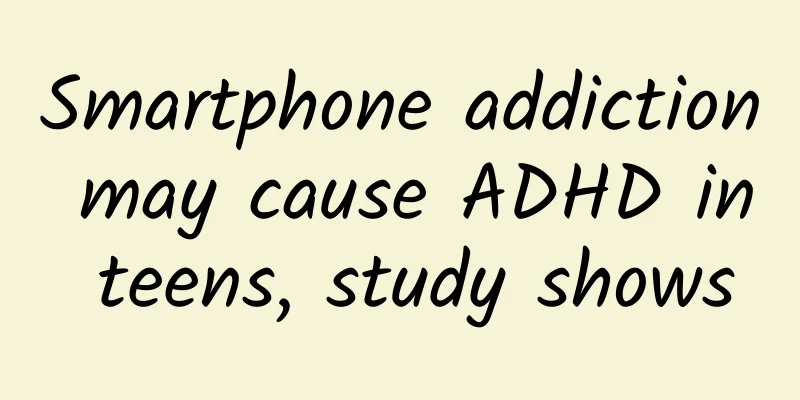Smartphone addiction may cause ADHD in teens, study shows

|
Teenagers who frequently use smartphones may develop symptoms of attention deficit hyperactivity disorder (ADHD), a new study suggests. Teens who frequently use smartphones may develop symptoms of attention deficit hyperactivity disorder (ADHD) According to the United Press International, as smartphones become more popular around the world, many parents are worried about whether these ubiquitous and attractive electronic devices will cause psychological or behavioral problems in their children. The results of this study from the University of Michigan show that this is possible. The researchers found that teens who used smartphones multiple times a day during the study period also had a significantly increased risk of developing ADHD symptoms within the next two years. About 10% of them reported new problems with attention, concentration or sedentary behavior, hallmarks of ADHD, compared with less than 5% of kids who minimized smartphone use, the study showed. The researchers pointed out that the results of this study do not prove a direct cause-and-effect relationship between smartphones and ADHD. There are many other factors that may cause these symptoms in adolescents, such as family income, whether the child suffers from depression, and whether he smokes, takes drugs or drinks. The researchers also pointed out that the key to dealing with this problem is how parents influence their children. For those children who don't play with mobile phones much, their parents generally set more rules at home or encourage their children to participate in more positive activities to promote their mental health development. The researchers also pointed out that the results also show that smartphones are more likely to cause ADHD symptoms than traditional forms of media such as television and video games because some children play with their phones almost all day long. When children are accustomed to constant stimulation, they may develop patience or tolerance problems. Nearly 2,600 high school students in the United States participated in the two-year study, and none of them had ADHD symptoms at the beginning. The results showed that for those children who were not exposed to mobile digital media (once or twice a day), only 4.6% of them had ADHD symptoms; for children who were exposed to mobile digital media at least seven times a day, 9.5% to 10.5% reported new ADHD symptoms, such as impulsivity or inattention; and for children who were addicted to mobile phones every day, the incidence of ADHD symptoms increased by 10%. Therefore, researchers suggest that parents should discuss this issue more with their children, pay attention to their children's use of electronic devices such as mobile phones, and set an example themselves. If parents also look at their phones at the dinner table, their children will naturally follow suit. The study was published in the Journal of the American Medical Association. Source: Qiaobao.com |
<<: What is the problem of often dry and itchy eyes? How to relieve it?
>>: App Annie: Global App Market Report for the Second Quarter of 2018
Recommend
Menstruation is delayed, the blood is less and lighter in color?
In life, many women have encountered this situati...
Can white vinegar be used to pickle sauerkraut? Why not use white vinegar to pickle sauerkraut?
We all know that sauerkraut is a common food. It ...
"Millennial Ginseng" Pueraria powder is good for beauty and breast enhancement
Pueraria powder is a purely natural health food t...
What shampoo to use during pregnancy
The skin of pregnant women is particularly fragil...
What are the benefits of playing basketball? The development of basketball
Basketball is a very good sport. People who play ...
World Glaucoma Week | This "killer" is a bit cruel, stealing and taking away your eyesight
Mentioning glaucoma What do you think? Eye swelli...
How can humans have high-quality sleep?
One third of a person's life is spent sleepin...
What can I eat to bring my period earlier?
As we all know, women will have their periods eve...
What are the symptoms and treatment of cervical erosion?
Cervical erosion is a very common gynecological d...
What causes women's breast swelling?
The breast is a part of the body that is unique t...
Is it normal to have your period after having sex?
Basically every woman should know her menstrual p...
Can I use iodine to disinfect during pregnancy?
Iodine tincture contains a large amount of ethano...
How old are girls when they have sexual fantasies
With the development of the economy, people's...









